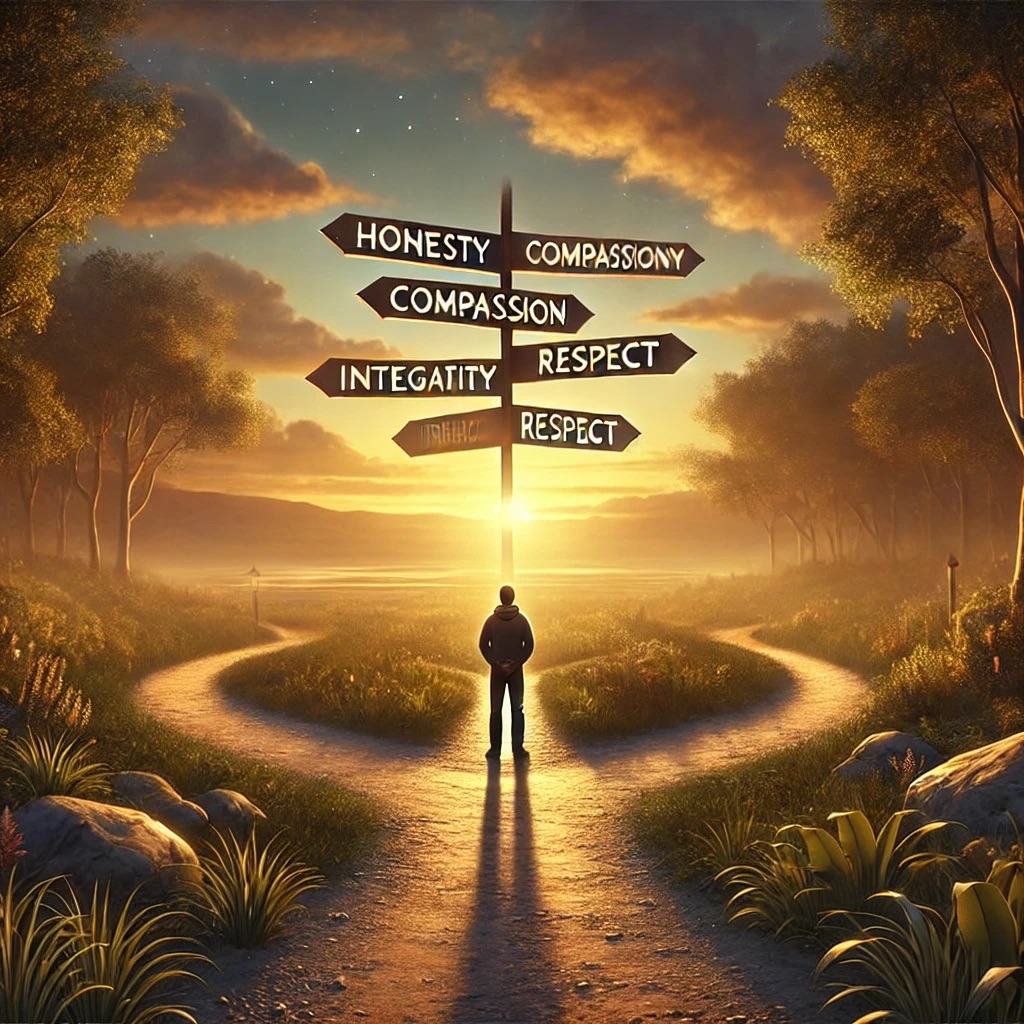|
Getting your Trinity Audio player ready...
|

In a world often obsessed with material success, many people are conditioned to confuse their values with their self-worth. This confusion is driven by societal pressures that equate financial achievements, professional titles, and public recognition with a person’s intrinsic value. In French, “valeur” refers to both value and worth, illustrating how deeply intertwined these concepts can be. However, sooner or later, we begin to understand that our true values are less about what we own and more about who we are at our core.
Our values define us beyond our possessions, reflected in our principles and character. These core values—such as integrity, compassion, respect, and honesty—are the foundation of who we are. As John Dewey, the American philosopher, once said, “The deepest urge in human nature is the desire to be important.” True importance doesn’t come from external success, but from the values we hold and live by.
Core Values: A Compass in Uncertain Times
At the heart of who we are lie our core values. These act as a moral compass, guiding us when we face challenges or unusual situations. Core values, unlike external circumstances, remain constant and shape how we respond to the world around us.
For example, someone who values honesty may find themselves uncomfortable in an environment where deception is common. Similarly, a person who values kindness will naturally seek to help others in need. Identifying these core values is essential because they provide us with a sense of direction and authenticity, enabling us to navigate life’s challenges with purpose.
In addition to these core values, we may also hold a set of situational values that apply to different areas of our lives, such as:
• Family Values: Principles like loyalty, love, and respect, which guide our relationships with loved ones.
• Workplace Values: Ideals such as professionalism, responsibility, and teamwork, which shape our approach to career and business.
• Financial Values: Beliefs about saving, investing, and wealth management that influence our financial decisions.
• Community Values: Principles of service, civic responsibility, and social justice, which guide our role in society.
These situational values complement our core values and help us maintain a balanced life. As we encounter new experiences, these values may shift and evolve, but they always reflect our fundamental beliefs.
Emotions: A Key to Understanding Our Values
One way our values are revealed is through our emotions. Our emotional responses to situations, events, and people provide valuable insight into the things we hold most dear. When something brings us joy, it often aligns with one of our core values, whether it’s a sense of achievement, a feeling of connection, or the satisfaction of helping others. Conversely, emotions like frustration, anger, or sadness may arise when something conflicts with our values, such as when we witness injustice or dishonesty.
Psychologist Carl Rogers highlighted the role of emotions in self-understanding, stating, “What is most personal is most universal.” By reflecting on what triggers our emotions, we can uncover our true values and better understand the way we view the world. For instance, if acts of kindness bring us joy, it suggests that compassion is a core value. If chaos and disorder frustrate us, it may indicate that we value structure and harmony.
Recognising these emotional cues allows us to better understand ourselves and align our actions with our values, creating a sense of integrity and coherence in our lives.
The Sum of Our Values: Defining Our Intrinsic Worth
Ultimately, our intrinsic value as individuals is the sum of our core values and the additional values we adopt to maintain balance in life. These values, both foundational and situational, form the essence of our character and influence how we interact with others, approach our work, and contribute to our communities.
As philosopher Immanuel Kant once wrote, “In law, a man is guilty when he violates the rights of others. In ethics, he is guilty if he only thinks of doing so.” Kant’s words remind us that values are not abstract ideals, but real-world principles that guide ethical behaviour. By understanding our values, we gain insight into who we are and how we relate to the world around us.
Conclusion: A Journey of Self-Discovery
Making sense of our values is a vital part of self-awareness and personal growth. It helps us live authentically, ensuring that our actions reflect our deepest beliefs and that we remain true to ourselves. Our values offer a window into who we are, guiding us as we navigate the complexities of life with clarity and purpose. By reflecting on and embracing our values, we shape the course of our lives and uncover what truly matters.
As Mahatma Gandhi said, “Your beliefs become your thoughts, your thoughts become your words, your words become your actions, your actions become your habits, your habits become your values, your values become your destiny.” Understanding and living by our values leads to a life of meaning and purpose, grounded in authenticity.
